He needed to hear Africa speak for itself after a lifetime of hearing Africa spoken about by others Electrifying essays on the history, complexity, diversity of a continent, from the father of modern African literature.
Anthills of the Savannah
KSh 1,600.00
He needed to hear Africa speak for itself after a lifetime of hearing Africa spoken about by others Electrifying essays on the history, complexity, diversity of a continent, from the father of modern African literature.
1 in stock
Related products
-
matatu journal for african culture & society
KSh 3,000.00Matatu: Journal for African Culture and Society is an academic journal on African literatures and societies dedicated to interdisciplinary dialogue between literary and cultural studies, historiography, the social sciences, and cultural anthropology.
-
After Mandela: The Battle for the Soul of South Africa-the book we have all been waiting for
KSh 650.00When Nelson Mandela and the African National Congress declared victory over the bitter injustice of apartheid, some thought South Africa’s future was assured. But despite Mandela’s mission of reconciliation, rampant inequality remains; race relations are uneasy, violence is endemic and many in the ANC appear to have lost sight of the liberation ideals. With the election in 2009 of Jacob Zuma, a charismatic populist embroiled in scandal, uncertainty over the trajectory of the nation has only intensified.
South Africa now stands at a crossroads, and award-winning journalist Alec Russell draws on his deep knowledge of the country to tell us how it got there and to give us a compelling account, revised and updated for this edition, of the journey from Mandela to Zuma.
-
Contemporary psychiatry in Africa : a review of theory, practice and research
KSh 1,740.00This book harnesses the collective wisdom of African Psychiatry and therefore serves as a departure point for ongoing efforts to refine practice in accordance with the best practice and local needs. There are a number of chapters dedicated to a range of conditions, covering the most prevalent as well as some emerging conditions ranging from HIV related psychopathology to eating disorders. Additionally, the book provides a focus on a related and pertinent Sub-specialist field – that of neuropsychiatry. There is a chapter devoted to child and adolescent psychiatry – a sub-specialist area that is sorely underserviced. The elderly too are not forgotten in this book. Whilst much is spoken of the youth, it is well to consider the ageing members of society. Psychiatry and the law have also been adequately tackled through a chapter on forensic mental health. The book is a ‘must-read’ for academicians, researchers and practitioners in different areas of mental health. Postgraduate students pursuing various aspects of mental health, undergraduate medical students and diploma medical students will find this book quite ideal.
-
The Cry of the Go-Away Bird
KSh 1,200.00The Cry of the Go-Away Bird’ is the debut novel from Andrea Eames. It revolves around Elise, a white Zimbabwean girl living through her teens on the eve of the Mugabe-sponsored farm invasions at the beginning of this century. The author herself grew up in Zimbabwe before moving to New Zealand with her family at the age of seventeen and there is a strong sense of memoir and personal experience in the novel, which has both positive and negative effects on the narrative.
The main character is drawn very effectively. The natural anxieties felt when emerging into an adult world are uncannily accurate, and allow the reader to relate to Elise and her family as their experiences later become more extreme. However, sometimes the story is so personal that it verges on one-sided. There is more variety, and a more complex array of emotions and motivations among the white characters than the black ones. The black characters are unfathomable and often sinister. Perhaps this is how Elise really sees them, but the novel could have perhaps painted a more complex picture for the reader of the spectrum of attitudes surrounding these massive social upheavals.
Eames makes various attempts to describe the fragile nature of race relations in post-independence Zimbabwe. Often she succeeds admirably, as when Elise’s parents invite a black farm-worker and his wife over for dinner in an effort to make friends. The awkwardness felt by all is palpable and it is a fine piece of writing. Eames clearly has a talent for describing a society in microcosm. There are examples of Eames’ considerable powers of observation elsewhere in the book too. Of the ‘Bush War’ (or War of Independence) it is said, The war felt like a death in the family – someone whose name was never mentioned, who was cut out of photographs. Of Mugabe, Elise says, He was like a hated Headmaster, overbearing and incompetent, towards whom you felt a kind of loyalty. This metaphor demonstrates that Eames is certainly able to express complicated emotions in a clear and artful manner.
There are, however, times in the novel when the writing fails in this respect. Sentences such as We were Whites, and nothing else and The air between us was a different colour, are clumsy and blunt, and have a taste of bitterness that the story does not benefit from.
The action in the novel is heavily weighted towards the last half, when the actual farm invasions and killings of farmers are taking place. In these pages the book does become compelling. Eames successfully renders the panicked atmosphere of a rapidly crumbling way of life, and the events feel both real and shocking.
Overall, though well written, the novel is trying to tell too many stories in too many ways. Elise’s story is cut-off by the dramatic political events occurring, but those events appear as from nowhere and lack real context. The book is still worth reading for a glimpse into this interesting and unfamiliar world, but there may be better novels to come from Andrea Eames.
-
The Fante and the Transatlantic Slave Trade-Paperback
KSh 995.00The Fante and the Transatlantic Slave Trade explores the fascinating history of the transatlantic slave trade on Ghana’s coast between 1700 and 1807. Author Rebecca Shumway brings to life the survival experiences of southern Ghanaians as they became both victims of continuous violence and successful brokers of enslaved human beings. The era of the slave trade gave birth to a new culture in this part of West Africa, just as it was giving birth to new cultures across the Americas. The Fante and the Transatlantic Slave Trade pushes Asante scholarship to the forefront of African diaspora and Atlantic World studies by showing the integral role of Fante middlemen and transatlantic trade in the development of the Asante economy prior to 1807.
-
-
Beyond White Mischief: The Memoirs of a Tea Planter’s Wife-SHEILA WARD
KSh 395.00When Sheila Ward went off to RADA to train as an actress in the early 1950s, she had no idea of the stormy path her life would take. After a short career as an actress in rep, with all the joys of juggling different roles and the comic possibilities of living in grim digs on very little money, she met and married a tea planter, and went off to live in Africa.
Through Sheila’s diaries, life in Africa springs into sharp relief as she learns to live with snakes, bugs and the recalcitrant servants. Sheila and her husband have four children and gradually adapt to a very different way of life. She meets the author Gerald Durrell, and Joy and George Adamson of Elsa the lioness fame, entertains fellow ex-pats and learns to love the unique terrain of Kenya’s hills.
-
Letters from Robben Island: A Selection of Ahmed Kathrada’s Prison Correspondence, 1964-1989 Paperback
KSh 1,295.00Late one night in July, 1963, a South African police unit surrounded the African National Congress headquarters in Rivonia and arrested a group of Movement leaders gathered inside. Eventually eight of them, including Nelson Mandela, who was already serving a sentence, Walter Sisulu, Dennis Goldberg, Govan Mbeki, Raymond Mhlaba, Elias Motsoledi, Andrew Mangeni, and Ahmed Kathrada, were convicted of sabotage and, on June 12, 1964, sentenced to life in prison. Soon, these men became widely known as the “Rivonia Trialists.” Despite their imprisonment, the Trialists played active roles in the struggle against South Africa’s racist regime. Instead of being forgotten, as apartheid officials had hoped, they became enduring symbols in a struggle against injustice and racism.
Kathrada and his colleagues were classified as high security prisoners, segregated from others and closely watched. Every activity was regulated and monitored. Among the many indignities visited upon them, the prisoners were prohibited from keeping copies of incoming and outgoing correspondence. Kathrada, or “Kathy” as he is known, successfully hid both.
Letters From Robben Island contains a selection of 86 of the more than 900 pieces of correspondence Ahmed Kathrada wrote during his 26 years on Robben Island and at Pollsmoor Prison. Some were smuggled out by friends; others were written in code to hide meaning and content from prison censors. These are among his most poignant, touching, and eloquent communications. They are testimonies to Kathrada, his colleagues, and to their commitment to obtaining human dignity and freedom for all South Africans.

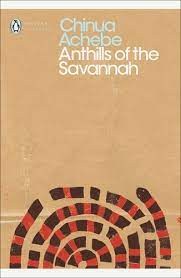
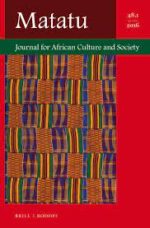
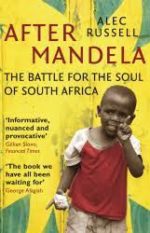
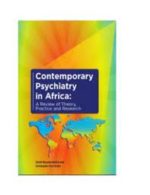
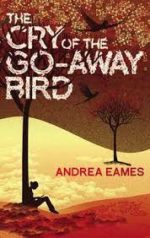
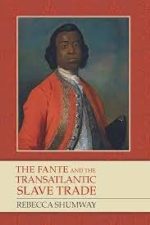
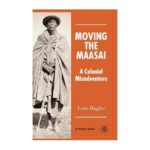


Be the first to review “Anthills of the Savannah”